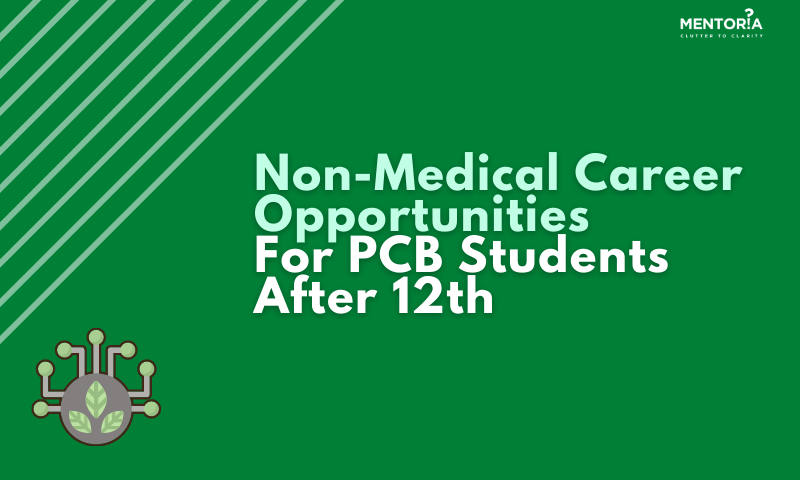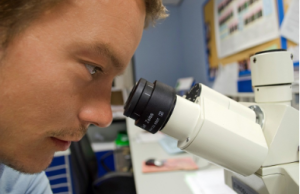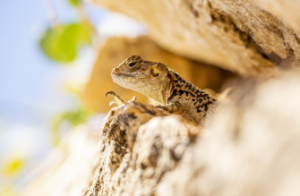Non-Medical Career Opportunities For PCB Students After 12th

The world of biology is full of opportunities, and as a PCB student, you’re in a great position to take advantage of them. While many people associate biology with medical careers, plenty of non-medical options can be just as rewarding.
In fact, the demand for professionals in the life sciences industry is expected to grow over the next decade. This means that there will be plenty of opportunities for PCB students to find fulfilling and well-paying careers outside of medicine.
While being a doctor or a nurse is admirable, there are plenty of other ways to utilise your biology background and make a difference in the world. And let’s face it – not everyone is cut out for a life in scrubs.
And with the rapid pace of technological advancement, who knows what amazing discoveries lie ahead? So if you’re ready to explore the exciting world of non-medical careers for PCB students, buckle up and get ready for an adventure. The future is yours for the taking!
1. Environmental Science
Environmental science is an interdisciplinary field combining biology, chemistry, physics, and geology with studying the natural environment and solving ecological problems.
As an environmental scientist, you may work for government agencies, private companies, or nonprofits. Your job duties may include conducting environmental impact assessments, analysing data, and developing solutions to environmental problems.
Salary: According to the Bureau of Labor Statistics, the median wage for environmental scientists and specialists in the United States is $71,360 annually.
Skills Required: Excellent analytical and problem-solving skills, strong communication skills, and a passion for the environment are essential for a career in environmental science. Most entry-level positions require a bachelor’s degree in environmental science or a related field.
2. Biotechnology
Biotechnology involves using living organisms and their components to create valuable products and processes. This field has numerous applications in medicine, agriculture, and environmental science.
As a biotechnologist, you may work for pharmaceutical companies, research institutions, or biotech startups. Your job duties may include developing new products, conducting laboratory tests, and analysing data.
Salary: According to PayScale, the average salary for a biotechnologist in India is around $ 80,000 per year.
Skills Required: A strong understanding of biology, chemistry, and genetics, as well as excellent analytical and problem-solving skills, are essential for a career in biotechnology. Most biotech positions require a bachelor’s degree in biotechnology, biology, or a related field.
3. Wildlife Biology
If you love animals and want to work in the great outdoors, a career in wildlife biology might be perfect for you. Wildlife biologists study animals in their natural habitats, collecting data on behaviour, diet, and population size to help protect and manage animal populations.
Salary: The Bureau of Labor Statistics reports that the median salary for wildlife biologists in the United States is $63,420 annually.
Skills Required: Excellent observation and research skills and a strong understanding of biology and ecology are essential for wildlife biology. Most wildlife biologist positions require a bachelor’s degree in biology, ecology, or a related field.
4. Science Writing
If you have a passion for science and a talent for writing, a career in writing for science may be an excellent fit. Science writers work for magazines, newspapers, or online publications, covering scientific topics for a general audience. Your job duties may include researching, writing, and editing articles and conducting interviews with scientists.
Salary: According to Glassdoor, the average salary for a science writer in the United States is around $70,000 annually.
Skills Required: Excellent writing skills, a strong understanding of science, and the ability to explain complex concepts to a general audience are essential for a career in science writing. A bachelor’s degree in science or journalism is preferred but only sometimes required.
5. Nutritionist/Dietician
Nutritionists and dieticians work with individuals to develop personalised nutrition plans based on their health needs and goals. They may work in hospitals, clinics, gyms, or private practices. Nutritionists and dieticians may also research to develop new nutrition programs or educate the public on the importance of healthy eating.
Salary: According to PayScale, the average salary for a nutritionist/dietician in India is around ₹290,000 per year.
Skills Required: Nutritionists and dieticians must have a strong foundation in biology and chemistry and knowledge of food science and human physiology.
So, What Are You Choosing?
In conclusion, PCB students have a wide range of career options to choose from beyond the traditional medical fields. The opportunities are endless, from environmental science and biotechnology to wildlife biology and science writing.
With the right skills and qualifications, you can make a successful career in any of these fields and contribute to society meaningfully. If you’re feeling overwhelmed with the plethora of options and not sure which career path to choose, Mentoria is here to help.
Our expert career counsellors can guide you through the process, assess your strengths and interests, and help you make an informed decision. Don’t hesitate to contact us for a consultation and take the first step towards a fulfilling career.











